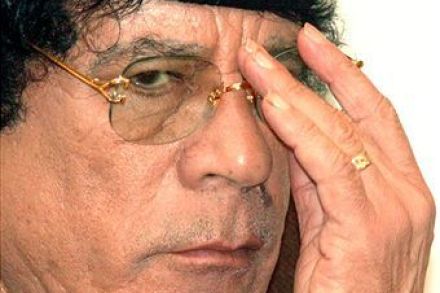Lunching with Gaddafi
I counted Gaddafi in on a journey to Tripoli to interview him early in his reign and now I am counting him out. At the time the young Libyan was still a mysterious newcomer to the international scene. For years it had been foretold that one day some unknown colonel would appear Nasser-like to overthrow the monarchy and drag Libya kicking and screaming into the brutal world of Arab socialism. Now the prophesy was fulfilled by the arrival of the man of destiny, a Bedouin, a lieutenant-colonel who modestly promoted himself only one grade. After many requests and endless oriental coffees consumed, I finally received the summons to Revolutionary HQ













